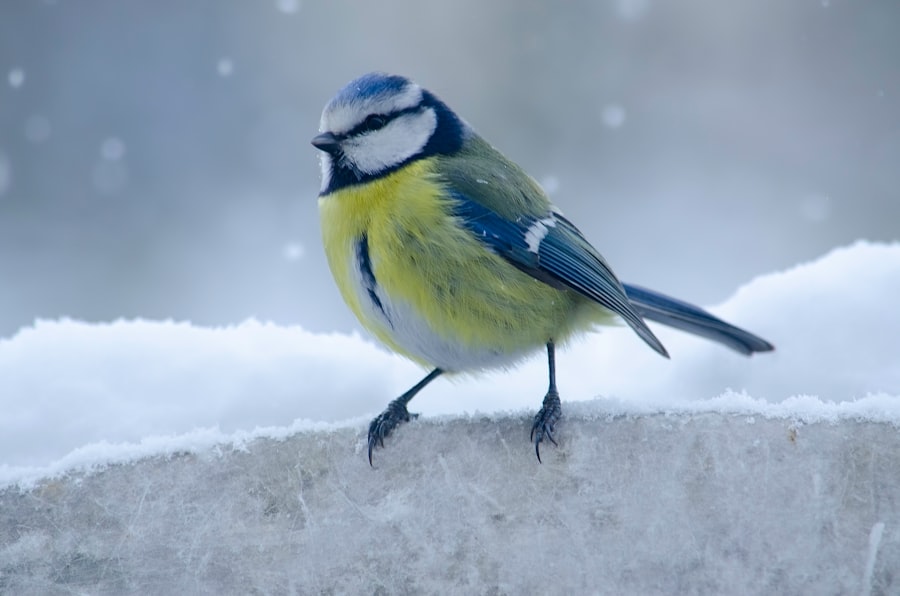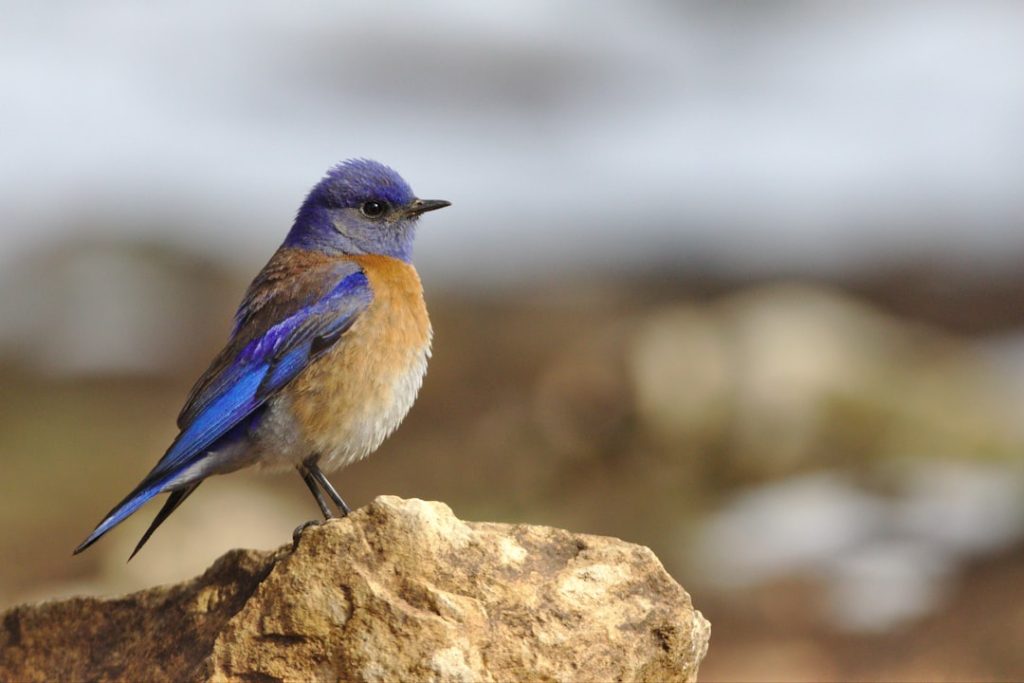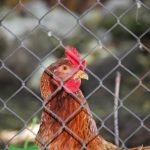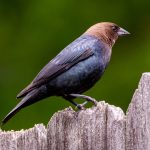Chicken hawks, or raptors, are birds of prey that threaten backyard chicken flocks. Species such as red-tailed hawks, Cooper’s hawks, and sharp-shinned hawks are included in this category. These predators possess exceptional eyesight and powerful talons, making them efficient hunters of free-ranging chickens.
Chicken hawks are opportunistic and will prey on various small animals, including chickens. Their hunting technique often involves swooping down from above to catch their prey by surprise. Identifying chicken hawk presence is crucial for flock protection.
These birds can be observed perched on high vantage points like trees or utility poles, scanning for potential prey. They may also be seen circling overhead while searching for food. Evidence of attacks, such as missing or injured chickens, can indicate their presence in the area.
Physical characteristics of chicken hawks include medium to large size, broad wings, and a sharp, hooked beak. Their keen eyesight and excellent flying abilities contribute to their effectiveness as predators. Recognizing these traits can help chicken owners implement appropriate deterrent strategies to protect their flocks from potential attacks.
Understanding the threat posed by chicken hawks and being able to identify their presence is essential for implementing effective measures to safeguard chickens.
Table of Contents
- 1 Implementing Physical Deterrents: Building Chicken Coops and Enclosures
- 2 Utilizing Visual Deterrents: Scarecrows and Reflective Objects
- 3 Employing Sound Deterrents: Noisemakers and Predator Calls
- 4 Implementing Natural Deterrents: Companion Animals and Plants
- 5 Practicing Good Husbandry: Monitoring and Protecting Your Flock
- 6 Seeking Legal Protection: Understanding and Utilizing Wildlife Laws
- 7 FAQs
Key Takeaways
- Chicken hawks are a threat to your flock and can be identified by their size, sharp talons, and hooked beaks
- Building chicken coops and enclosures can physically deter chicken hawks from attacking your flock
- Scarecrows and reflective objects can be used as visual deterrents to scare off chicken hawks
- Noisemakers and predator calls can be employed as sound deterrents to keep chicken hawks away from your flock
- Utilizing companion animals and plants can act as natural deterrents to protect your flock from chicken hawks
Implementing Physical Deterrents: Building Chicken Coops and Enclosures
Secure Housing: The First Line of Defense
One of the most effective ways to safeguard your chickens from chicken hawks is to provide them with secure housing. Building a sturdy and predator-proof chicken coop and enclosed run can significantly reduce the risk of chicken hawk attacks. A well-constructed coop with solid walls and a secure roof can prevent chicken hawks from gaining access to your chickens.
Creating a Safe Outdoor Space
Additionally, enclosing the outdoor run with wire mesh or netting can create a safe space for your flock to roam without the threat of aerial predators. By implementing physical barriers such as chicken coops and enclosures, you can create a protective environment for your chickens to thrive.
Strategic Placement and Additional Protection
In addition to building secure housing, it is important to consider the placement of the chicken coop and run. Locating the coop in an open area with good visibility can help deter chicken hawks from approaching. Avoid placing the coop near tall trees or structures where predators can perch and observe your flock. Furthermore, adding a roof or overhead cover to the outdoor run can provide additional protection from aerial predators.
Utilizing Visual Deterrents: Scarecrows and Reflective Objects

Visual deterrents such as scarecrows and reflective objects can be effective tools for deterring chicken hawks from targeting your flock. Scarecrows are traditional agricultural devices designed to mimic the appearance of a human figure and are commonly used to ward off birds and other pests. By placing scarecrows in and around your chicken coop and run, you can create the illusion of human presence, which may deter chicken hawks from approaching.
Additionally, reflective objects such as shiny tape, CDs, or aluminum foil can be hung around the coop and run to create flashes of light that may startle and deter predators. By utilizing visual deterrents, you can help protect your chickens from potential attacks by chicken hawks. Another visual deterrent that can be effective against chicken hawks is the use of predator decoys.
These lifelike replicas of predatory animals such as owls or falcons can create the illusion of a threat in the area, causing chicken hawks to avoid the vicinity of your flock. Placing predator decoys in and around the chicken coop and run can help create a sense of danger for potential predators, deterring them from targeting your chickens. Additionally, rotating the placement of decoys and visual deterrents can help prevent predators from becoming accustomed to their presence.
By utilizing visual deterrents such as scarecrows, reflective objects, and predator decoys, you can help safeguard your flock from potential attacks by chicken hawks.
Employing Sound Deterrents: Noisemakers and Predator Calls
Sound deterrents such as noisemakers and predator calls can be effective tools for deterring chicken hawks from targeting your flock. Noisemakers such as air horns, whistles, or electronic devices that emit loud sounds can startle and deter predators from approaching your chickens. By using these devices strategically when chicken hawks are observed in the area, you can disrupt their hunting behavior and discourage them from targeting your flock.
Additionally, predator calls that mimic the sounds of predatory animals such as owls or falcons can create a sense of danger for potential predators, causing them to avoid the vicinity of your chickens. By employing sound deterrents, you can help protect your chickens from potential attacks by chicken hawks. Another sound deterrent that can be effective against chicken hawks is the use of distress calls from other birds.
When chickens sense danger, they will often emit distress calls that alert other members of the flock to potential threats. By playing recordings of these distress calls in the vicinity of your coop and run, you can create a sense of danger for potential predators, deterring them from targeting your chickens. Additionally, rotating the use of different sound deterrents can help prevent predators from becoming accustomed to specific noises.
By employing sound deterrents such as noisemakers, predator calls, and distress calls, you can help safeguard your flock from potential attacks by chicken hawks.
Implementing Natural Deterrents: Companion Animals and Plants
Natural deterrents such as companion animals and plants can be effective tools for deterring chicken hawks from targeting your flock. Companion animals such as dogs or geese can provide an added layer of protection for your chickens by alerting you to potential threats and deterring predators from approaching. Dogs are natural guardians and can help keep watch over your flock, while geese are known for their aggressive behavior towards potential threats.
By introducing companion animals to your homestead, you can create a sense of security for your chickens and deter chicken hawks from targeting them. Additionally, planting dense shrubs or trees around the perimeter of the coop and run can provide cover for your flock and make it more difficult for aerial predators to approach. By implementing natural deterrents such as companion animals and plants, you can help protect your chickens from potential attacks by chicken hawks.
Another natural deterrent that can be effective against chicken hawks is the use of roosters within your flock. Roosters are natural protectors and will often sound alarm calls when they sense danger, alerting the rest of the flock to potential threats. Their aggressive behavior towards potential predators can also deter chicken hawks from approaching.
By introducing roosters to your flock, you can provide an added layer of protection for your chickens and deter aerial predators from targeting them. Additionally, planting aromatic herbs such as lavender or mint around the coop and run can help mask the scent of your chickens and make it more difficult for predators to locate them. By implementing natural deterrents such as companion animals, roosters, and aromatic plants, you can help safeguard your flock from potential attacks by chicken hawks.
Practicing Good Husbandry: Monitoring and Protecting Your Flock

Securing the Environment
Repairing holes or gaps in fencing or netting is essential for maintaining a secure environment for your flock. Additionally, providing adequate shelter and perches within the coop can give your chickens a safe haven to retreat to if they sense danger.
Vigilance and Observation
Being vigilant and observant of potential threats to your flock is another critical aspect of good husbandry. Monitoring the behavior of wild birds in the area and being aware of any signs of predatory activity can help you take proactive measures to protect your chickens. Keeping a watchful eye on the sky for circling birds of prey or other potential threats can help you anticipate and deter potential attacks on your flock.
Proactive Protection
By being present during times when chicken hawks are most active, such as dawn and dusk, you can help deter predators from approaching your chickens. By practicing good husbandry and staying vigilant in monitoring and protecting your flock, you can help safeguard them from potential attacks by chicken hawks.
Seeking Legal Protection: Understanding and Utilizing Wildlife Laws
Seeking legal protection for your flock is an important aspect of safeguarding them from potential threats such as chicken hawks. Understanding wildlife laws in your area pertaining to the protection of domestic animals can help you take appropriate measures to deter predators and protect your chickens. In some regions, there may be regulations that allow for the removal or relocation of predatory birds that pose a threat to livestock.
By familiarizing yourself with these laws and regulations, you can take proactive steps to legally protect your flock from potential attacks by chicken hawks. Additionally, seeking assistance from local wildlife authorities or conservation organizations can provide valuable resources and support for protecting your flock from predatory birds. These organizations may offer guidance on legal methods for deterring predators or provide assistance in obtaining permits for predator control measures if necessary.
By seeking legal protection for your flock through collaboration with wildlife authorities and conservation organizations, you can ensure that you are taking appropriate measures to safeguard your chickens from potential attacks by chicken hawks. In conclusion, understanding the threat posed by chicken hawks is essential for implementing effective deterrent strategies to protect your flock. By identifying their presence through behavior and physical characteristics, you can take proactive measures to safeguard your chickens from potential attacks.
Implementing physical deterrents such as secure housing and strategic placement, visual deterrents such as scarecrows and reflective objects, sound deterrents such as noisemakers and predator calls, natural deterrents such as companion animals and plants, practicing good husbandry through monitoring and protection, and seeking legal protection through wildlife laws are all important steps in safeguarding your flock from predatory birds such as chicken hawks. By employing these comprehensive strategies, you can create a safe and secure environment for your chickens to thrive while deterring potential threats from predatory birds.
If you’re looking for ways to protect your chickens from predators like chicken hawks, you may also be interested in learning about how guinea fowl can help keep your chickens safe. Check out this article on how guinea fowl can live with chickens to see if adding these birds to your flock could be a solution to your predator problem.
FAQs
What is a chicken hawk?
A chicken hawk is a term used to describe various species of hawks that prey on chickens and other poultry.
Why do chicken hawks target chickens?
Chicken hawks target chickens because they are easy prey and provide a readily available food source for the hawks.
What are some methods to keep chicken hawks from eating chickens?
Some methods to keep chicken hawks from eating chickens include using netting or wire mesh to cover the chicken coop, providing overhead cover for the chickens, and using scare tactics such as reflective objects or noise makers.
Are there any legal methods to deter chicken hawks?
Yes, there are legal methods to deter chicken hawks from preying on chickens. These methods include using visual deterrents, sound deterrents, and physical barriers to protect the chickens.
What are some natural predators of chicken hawks?
Some natural predators of chicken hawks include larger birds of prey, such as eagles and owls, as well as terrestrial predators like foxes and coyotes.
Meet Walter, the feathered-friend fanatic of Florida! Nestled in the sunshine state, Walter struts through life with his feathered companions, clucking his way to happiness. With a coop that’s fancier than a five-star hotel, he’s the Don Juan of the chicken world. When he’s not teaching his hens to do the cha-cha, you’ll find him in a heated debate with his prized rooster, Sir Clucks-a-Lot. Walter’s poultry passion is no yolk; he’s the sunny-side-up guy you never knew you needed in your flock of friends!







